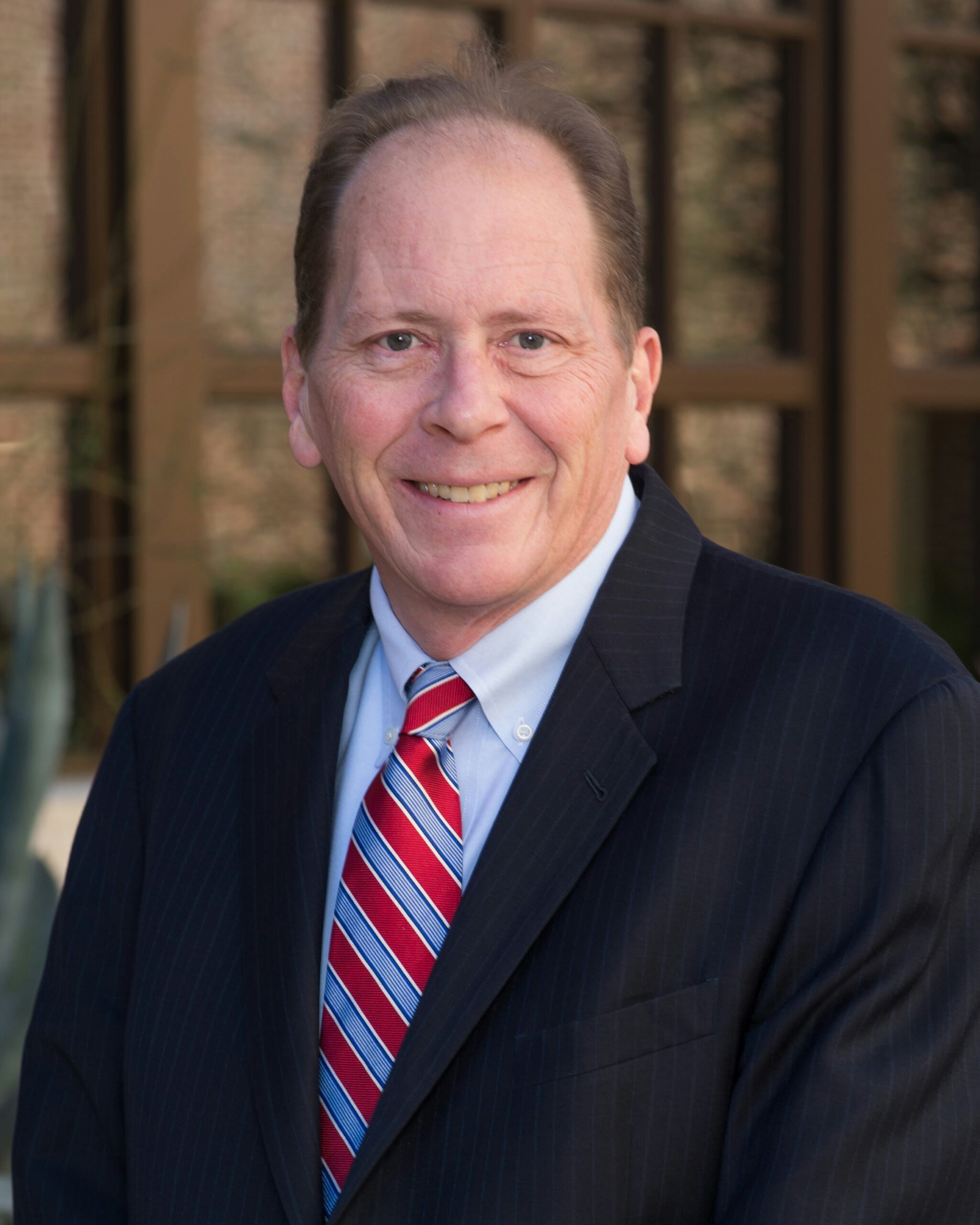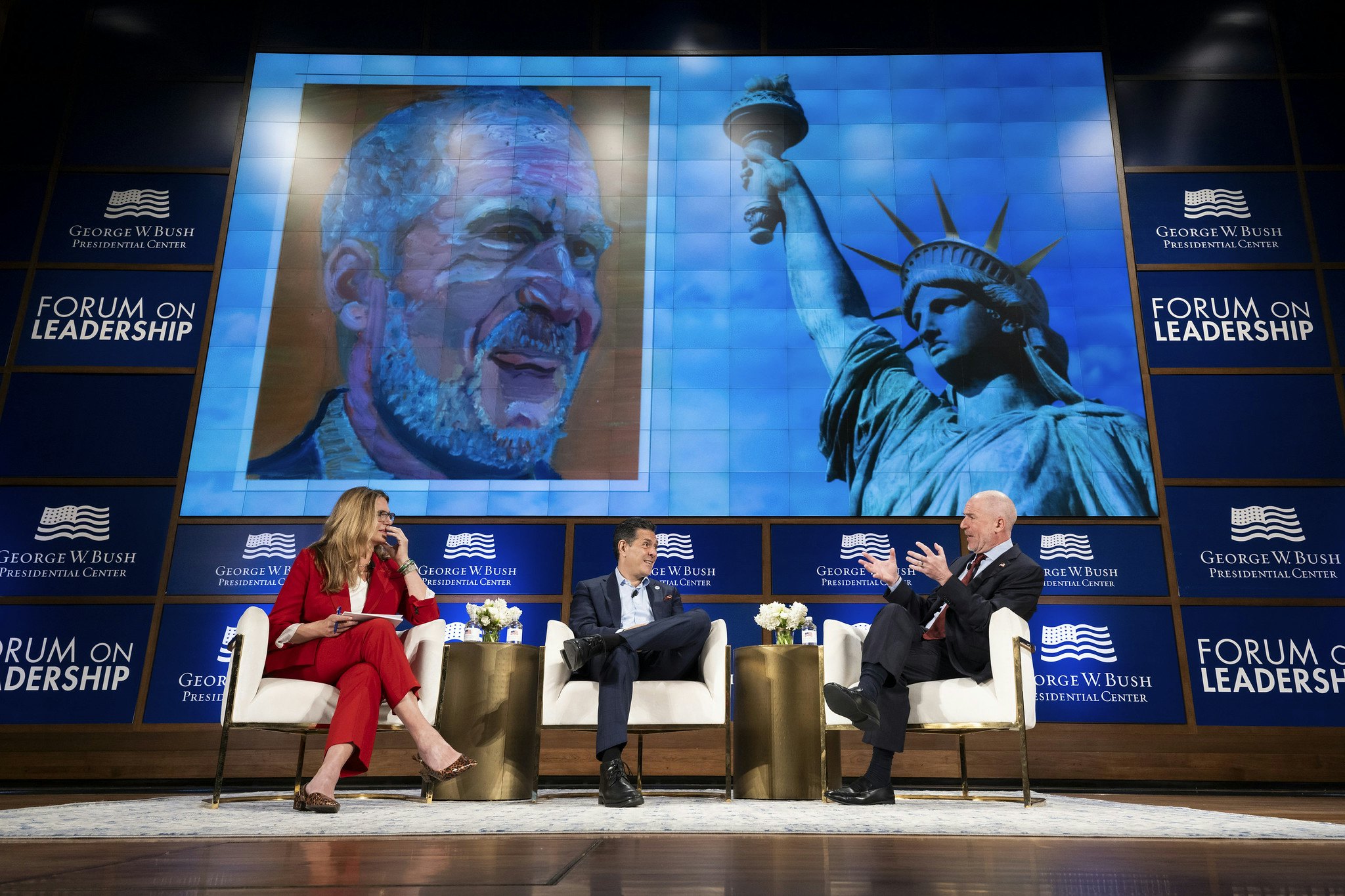As part of the George W. Bush Presidential Center’s Forum on Leadership, Dr. Condoleezza Rice and American Enterprise Institute President Arthur C. Brooks held a fascinating and far-ranging conversation on April 18.
As part of the George W. Bush Presidential Center’s Forum on Leadership, Dr. Condoleezza Rice and American Enterprise Institute President Arthur C. Brooks held a fascinating and far-ranging conversation on April 18.
While they touched on subjects as diverse as sports, music, education, and Dr. Rice’s experience growing up in segregated Alabama; for me, the highlight was a discussion of foreign policy and America’s role in the world.
As a senior advisor to President George H.W. Bush and as National Security Advisor and our 66th Secretary of State under President George W. Bush, Dr. Rice has had a unique vantage point, helping to craft American foreign policy. Nine years after leaving government service, she continues to be an outspoken observer of how America interacts with the world.
When asked about the many threats around the world today – such as Syria, North Korea, and ISIS – Dr. Rice instead pointed to a broader threat that links many of the challenges we face, what she termed a crisis of confidence in a functioning world order. She noted that the architecture that America devised and maintained in the seven decades since the end of World War II – including political, military, and economic structures – is being neglected and at risk of collapse.
For example, a commitment to international trade, governed by a set of mutually agreed principles and multilateral institutions, helped rebuild prosperity and anchored democracy in the vanquished Axis powers of Germany and Japan, but also helped propel growth in the United States and the allied nations that defeated them. Dr. Rice lamented and emphatically rejected the rise of the notion that trade is a zero-sum game. To the contrary, she maintains that the international system America built worked and lifted millions out of poverty.
In her view, the America-designed international order is under assault from what she termed “the four horsemen of the apocalypse:” populism, nativism, isolationism, and protectionism. These trends are gaining around the world, but also here at home.
Dr. Rice acknowledged that some Americans are weary of the burdens of global leadership, but counseled that “great powers can’t get tired.” If the United States walks away from its role as a global leader, it won’t be other democracies like Europe or Japan that fill the gap – it will be our adversaries like Russia, China, and Iran that seek to take advantage.
Secretary Rice argued that the combination of democracy, free markets, and American military power brought freedom and prosperity to places like Europe, Japan, and South Korea, kept the sea lanes open for trade, and brought much of the world peace for 70 years. These principles anchored America’s worldview through Republican and Democratic administrations alike because they also brought peace and prosperity to our own country.
Dr. Rice called for putting principle back in how America interacts with the world. When asked what single change she would make in foreign policy, she urged making compassion the center of what we do. She mentioned initiatives like the Peace Corps, the Alliance for Progress, and PEPFAR as being emblematic of the best of America. These programs and others like them not only improve the human condition, but repay America many times over through an outpouring of goodwill.
While some may wish the country could withdraw from the world, Condoleezza Rice concluded with a note of caution. “Every foreign policy crisis,” she said, “will be worse if the United States doesn’t play its role.”
In a chaotic and dangerous world, I share her view that principled American leadership is essential.




























